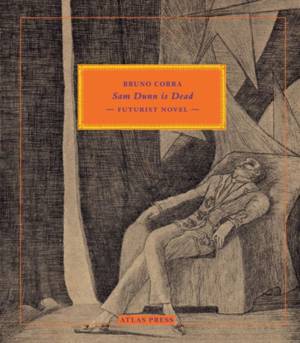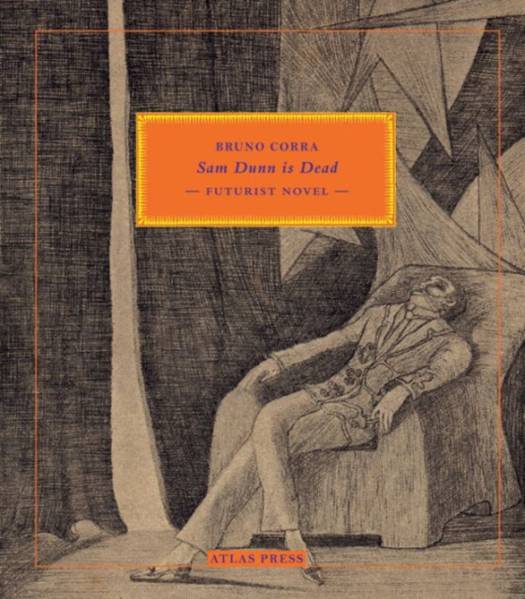
- Afhalen na 1 uur in een winkel met voorraad
- Gratis thuislevering in België vanaf € 30
- Ruim aanbod met 7 miljoen producten
- Afhalen na 1 uur in een winkel met voorraad
- Gratis thuislevering in België vanaf € 30
- Ruim aanbod met 7 miljoen producten
Zoeken
Omschrijving
Sam Dunn is Dead was described by its author Bruno Corra (1892-1976) as a "Futurist Novel" and was first published in book form by Filippo Marinetti's Edizioni Futuriste in 1917. Yet one will search in vain for any mention of this work in anthologies of Futurism. The novel's erasure is doubtless because it is so unlike anything else produced by Futurism (an ardent, masculine, positive and absurdly serious movement). Sam Dunn is Dead, a small masterpiece of black humor, is none of these things.
Not only is Sam Dunn at once funny, despairing, cerebral and ludicrous, it also traces a history in miniature of the modern spirit. It commences with a description of its eponymous hero, a languid 1890s poet who is about to unleash a thoroughly contemporary apocalypse upon the world. Subsequent chapters could be mistaken for Dadaist or Surrealist texts (but written a decade before their time), and then the whole edifice is fatally undermined by forces that are both banal and unusual (to avoid revealing too much). Corra subsequently considered his novel a failure, but today his sensitivity to the great undertows of history seems alarmingly prescient, and neither opinion should interfere with the reader's simple enjoyment of this novel's deliriously ebullient nihilism.
Not only is Sam Dunn at once funny, despairing, cerebral and ludicrous, it also traces a history in miniature of the modern spirit. It commences with a description of its eponymous hero, a languid 1890s poet who is about to unleash a thoroughly contemporary apocalypse upon the world. Subsequent chapters could be mistaken for Dadaist or Surrealist texts (but written a decade before their time), and then the whole edifice is fatally undermined by forces that are both banal and unusual (to avoid revealing too much). Corra subsequently considered his novel a failure, but today his sensitivity to the great undertows of history seems alarmingly prescient, and neither opinion should interfere with the reader's simple enjoyment of this novel's deliriously ebullient nihilism.
Specificaties
Betrokkenen
- Auteur(s):
- Illustrator(s):
- Vertaler(s):
- Uitgeverij:
Inhoud
- Aantal bladzijden:
- 80
- Taal:
- Engels
Eigenschappen
- Productcode (EAN):
- 9780993148705
- Verschijningsdatum:
- 27/10/2015
- Uitvoering:
- Paperback
- Formaat:
- Trade paperback (VS)
- Afmetingen:
- 147 mm x 170 mm
- Gewicht:
- 136 g

Alleen bij Standaard Boekhandel
+ 29 punten op je klantenkaart van Standaard Boekhandel
Beoordelingen
We publiceren alleen reviews die voldoen aan de voorwaarden voor reviews. Bekijk onze voorwaarden voor reviews.











